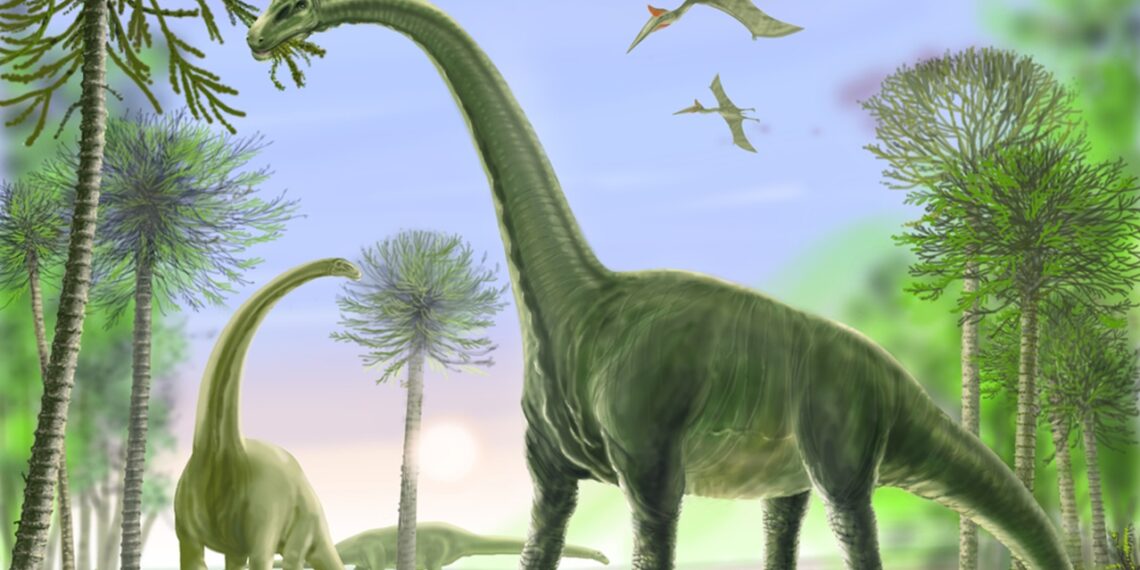SHILLONG: In a notable first for the Northeast, fossilised dinosaur teeth have been discovered in Meghalaya’s South West Khasi Hills.
The Palaeontology Division of the Geological Survey of India (GSI) announced that these significant fossils were unearthed near Mawphuli village, close to Ranikor, during the 2024 field season in January.
The newly discovered teeth belong to Titanosaurian sauropods, among the last of the long-necked dinosaurs.
“This is the first-ever reporting of dinosaurian teeth fossils in the Northeast. Earlier, many workers had reported the occurrences of fragmentary and disarticulated Sauropod dinosaur bones from Meghalaya,” the GSI said in a statement shared with the press.
The two teeth were found preserved in the sandstone of the Mahadek Formation from the Upper Cretaceous period (Maastrichtian age, 72.1 million to 66 million years ago).
Although the teeth are poorly preserved and incomplete, their morphology closely matches that of Titanosaurus teeth from the Late Cretaceous period, found in various parts of the world.
Dr. Bashab N Mahanta, the Public Relations Officer for GSI, highlighted the discovery’s importance.
“The finding in Meghalaya fills a gap in the stratigraphical record of Titanosaurian sauropods. It also enhances our understanding of the distribution and diversity of vertebrates in the Late Cretaceous formations of India,” he told a Shillong-based news portal.
Titanosaurian sauropods roamed the Earth for an impressive 165 million years before their extinction approximately 65 million years ago, likely due to an asteroid impact.
The presence of fossilised dinosaur parts in South West Khasi Hills suggests that this region also faced the impact, gradually revealing more prehistoric remnants.
In India, Titanosaurian sauropod fossils have previously been reported from the Lameta Formation in Gujarat, Madhya Pradesh, and Maharashtra, and the Kallamedu Formation in Tamil Nadu.
The GSI team, led by dedicated researchers, continues to explore the paleontological potential of South West Khasi Hills, with hopes of uncovering more prehistoric treasures that shed light on the ancient history of this region.















